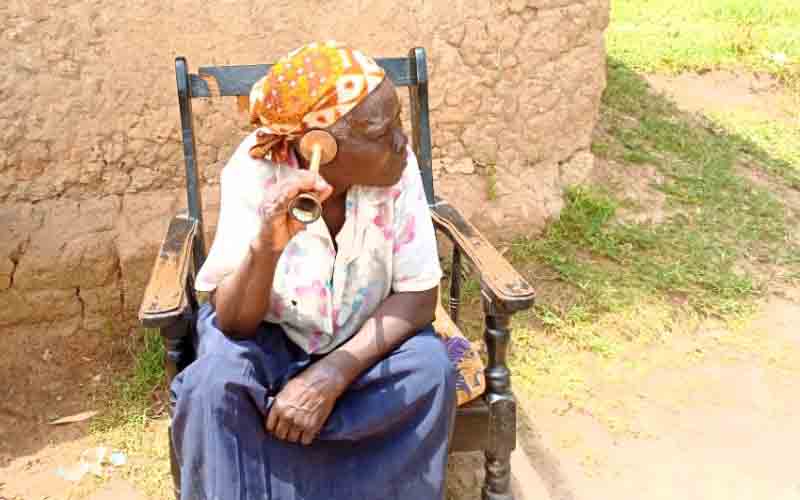
Florence Nakhumicha, 75, demonstrates how her 'stethoscope' works. She has been a midwife since 1974. [Courtesy]
Seventy-five-year-old Florence Nakhumicha from Sango village in Bungoma County has been a midwife since 1974.
Florence Nakhumicha, 75, demonstrates how her 'stethoscope' works. She has been a midwife since 1974. [Courtesy]
Seventy-five-year-old Florence Nakhumicha from Sango village in Bungoma County has been a midwife since 1974.